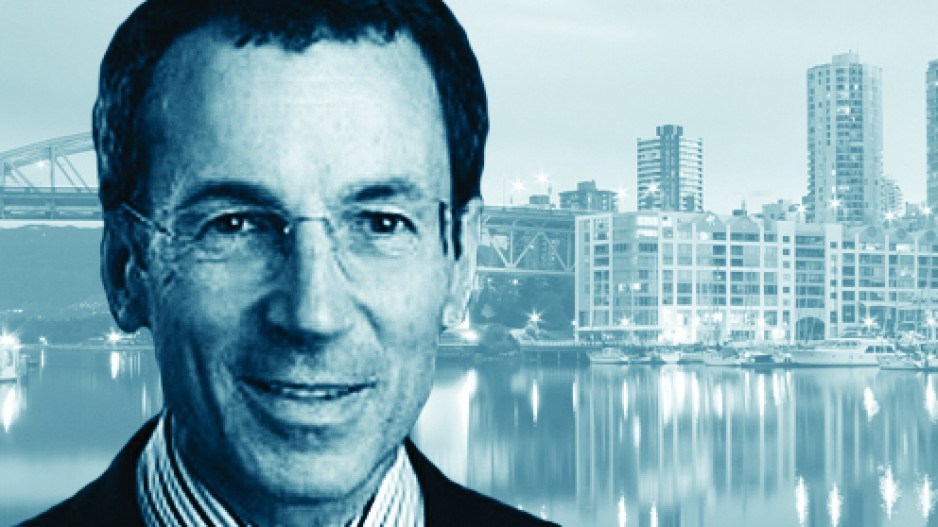Outside my home for the past two weeks a neighbour parked a BMW wrapped in a fitted grey cover with little black pockets for the side-view mirrors. The owner was exercising his right to store it for “free” on a public street, enjoying the subsidy from the Vancouver taxpayers who financed and maintain that street. I, too, enjoy parking my car on that street space, although I don’t have a handsome cover for my dusty car.
As users of the most heavily subsidized mode of transit, car drivers are clearly in the sights of the next go-round of proposals for funding our way out of the region’s growing congestion mess. Most of us who drive have little comprehension of the extent of public subsidies we enjoy – in spite of all those fuel and TransLink taxes. We will fight to say “no” to any new taxes or fees, but we expect someone to provide us with all the new roads and bridges we think we need.
Yes, there is a Plan B for transportation in the Lower Mainland now that the plebiscite for new tax financing is in the ditch. It’s a gradual swelling of the car population, a gradual cutting of transit services relative to population growth, and piecemeal megaprojects divorced from any regional planning goals (like the $3 billion Massey bridge).
If car ownership continues at current rates while the population grows, we can expect between 400,000 and 700,000 more cars piling onto our streets and parking around our homes. Except there won’t be room for all of them.
Putting a price on the free roads we now enjoy is the only way off this road to chaos: it’s either road pricing or congestion. That’s the conclusion of the Mayors’ Council on Regional Transportation, the BC Chamber of Commerce and many others. Take your pick.
But now we have to figure out how to get road pricing into Plan B-plus. That takes leadership. Who will that leader be?
Don’t worry, our transportation minister assures us, the new CEO of TransLink will turn us around. Really? That CEO will immediately have to build public support for a demoralized organization reeling from the shellacking it took during the plebiscite, working in a political climate where confidence in all public institutions is consistently undermined, being paid less than the CEO of BC Ferries, the Vancouver Airport Authority, Port Metro Vancouver or BC Hydro, answering to a reclusive, unaccountable board that has the public baying for its blood, starting Day 1 with cutting services, jeered by a chorus of people driving their cars at 20% capacity screaming for more efficiencies.
No, the next TransLink CEO cannot be expected to be the person to rally the region around a vision based on the regional plan (compact, high-density regional centres linked by transit).
That person has to be someone with the power to make the tough decisions, starting with revamping TransLink’s governance, moving on to making unpopular but necessary changes to tolling policies and TransLink’s revenue sources. Someone prepared to bust the myth of “free roads.”
There are only two people in that position: the minister of transportation and the premier. They head a government that has consistently taken away the region’s tools to fix our system, rebuffing regional requests for vehicle levies, parking taxes and new funding without a referendum. They have to build it back.
The road to recovery starts with embracing a vision for the region that promotes mobility, choices, equity, cleaner air and lower costs for moving around. It includes working with local elected officials for denser regional centres and infrastructure that serves that purpose, putting the brakes on our backward slide into gridlock hell.
Without the province accepting that responsibility, all the best efforts of all the best mayors won’t put our region together again.
Peter Ladner ([email protected]) is a co-founder of Business in Vancouver.




